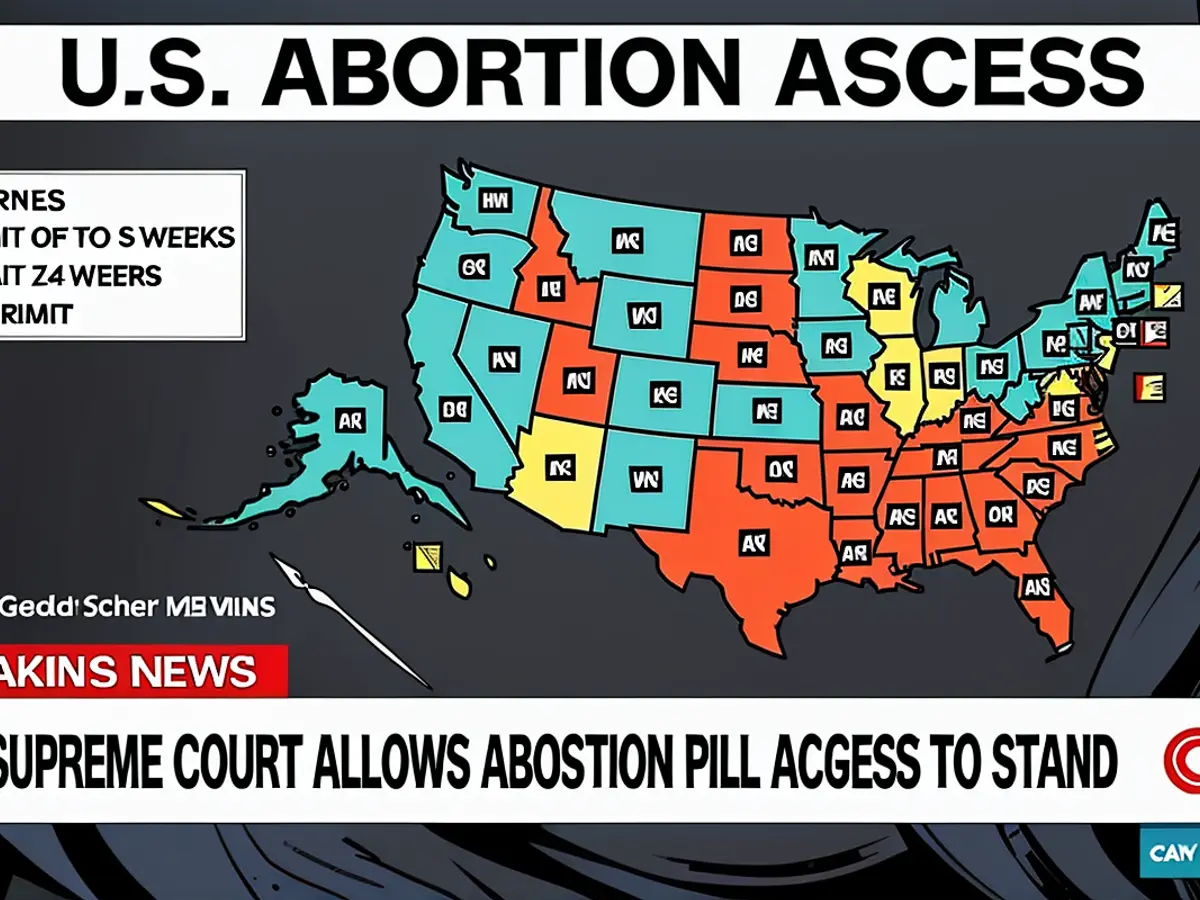Viewpoint: The battle for the abortion pill isn't over yet.
The Alliance Defending Freedom (ADF), a prominent conservative Christian legal organization, initiated a lawsuit last year on behalf of a group of anti-abortion doctors. They made striking allegations: the FDA never had the authority to approve mifepristone in 2000, and when it came to making it available through telehealth, the Comstock Act from the 19th century made it unlawful to mail the pills.
A unanimous Supreme Court dismissed the plaintiffs' request, deciding that these individuals never possessed the legal right to file a lawsuit. However, this outcome does not signify that the concerns raised by ADF will vanish. Other anti-abortion litigants are prepared to introduce the exact same claims and claim they have standing when others have failed. Questions about the future of abortion pills, including those connected to the Comstock Act, will probably reappear before the Supreme Court later on.
The top court's ruling pertained solely to the plaintiffs' lack of standing. Traditionally, when someone sues, they can point to an apparent harm. The doctors, however, attempted to create unconventional scenarios for how mifepristone influenced them, justifying their ability to sue for access to it. Initially, they argued that mifepristone may result in medical issues and, consequently, compel patients to undergo emergency care despite doctors' conscience-based objections. The court found this argument odd due to existing federal laws protecting conscientious medical professionals.
The doctors also advanced astonishing assertions about financial damages, such as increased insurance rates. The court rejected these claims because they were speculative and impractical. The court imagined various odd examples: "Firefighters could sue over relaxed building codes that boost fire hazards; teachers in border states could challenge immigration policies that lead to overcrowded schoolrooms."
The court rejected ADF's request for standing since it had to expend money and time on the case, detracting from other budgetary priorities. This would allow anyone to manufacture standing merely by filing a lawsuit.
Despite the court's ruling, the battle against mifepristone is not over. Other plaintiffs may try to establish standing. In the district court, Judge Matthew Kacsmaryk allowed three conservative states to join the case as plaintiffs. In FDA v. Alliance for Hippocratic Medicine, the Supreme Court did not permit these states to join the legal action, but the plaintiffs could file their own suit before Kacsmaryk. Despite these states' existing bans on abortion, they argue their residents are receiving pills through the mail. States would incur expenses pertaining to emergency care for patients who suffer consequences from taking mifepristone. The court may invalidate these standing arguments; nonetheless, similar claims about mifepristone are likely to resurface.
claims regarding the Comstock Act are most likely to resurface before the Supreme Court regardless of how the states' challenge plays out. Advocates close to former President Donald Trump are promoting strategies to enforce the Comstock Act as a de facto nationwide ban on abortions. The Comstock Act has not been interpreted by the courts as a no-exemptions abortion prohibition since the 1930s. Conservatives contend that this statute bans all mailings related to abortion. Since virtually every abortion incorporates an item mailed (spanning pills and medical gear), they argue that the Comstock Act represents a national ban that they can't convince voters to accept.
The Supreme Court dodged addressing the Comstock Act in FDA v. Alliance for Hippocratic Medicine. The politics of this stance make sense. Justices Samuel Alito and Clarence Thomas raised the Comstock Act at the case's oral arguments, yet there likely wasn't a majority inclined to engage the matter.
Furthermore, having two justices mention the Comstock Act in a ruling during an election year might have been too politically stimulating. Trump steered clear of discussing the Comstock Act, promising to release pronouncements about the matter and never doing so. Had Alito and Thomas described the Comstock Act as an abortion ban, the media and the Biden campaign would have pressed Trump to explain his standpoint.
Consequently, the court let Trump off the hook. Voters unfamiliar with the Comstock Act may receive limited information about the legislation and its possible enforcement before the election. If Trump triumphs and his Department of Justice regards the Comstock Act as an abortion ban, defendants like pharmaceutical companies or physicians would undoubtedly counter and contest in the Supreme Court. The court would then have to address Comstock issues that justices evaded in this case.
Abandoning the current stance on mifepristone could benefit Trump in the future. This decision reinforces the concept that abortion is a state matter, implying that federal courts will have less influence over the issue. This stance makes Trump appear less radical and more appealing to voters before the 2024 election.
Despite Thursday's decision maintaining mifepristone access, it's not a significant victory for abortion rights in the long run. The legal battle isn't finished yet, with another significant case on emergency access to abortion expected to be decided later this month.
The current round of the abortion pill controversy resulted in a unanimous decision due to conservative judges' skepticism about overreaching standing arguments. Additionally, the plaintiffs' claims were unconvincing regardless of their ideological inclinations. However, the struggle over mifepristone access will persist, and the Supreme Court will be at the heart of this battle.

Read also:
The concerns raised by ADF regarding the Comstock Act and the legality of mifepristone might be brought forward by other anti-abortion groups. The doctrine of standing, which was a central issue in the Supreme Court case, could be challenged again by plaintiffs claiming they have suffered financial or medical harm due to mifepristone.







